#settlers
Text
The South African government has expressed concerns that Israel’s continued occupation of “significant portions of the West Bank” and the development of new settlements there “are glaring examples of violations of international law” as the longrunning Israel-Palestine conflict goes on.
Share. Reblog. Protest. Boycott.
A lot of people forget that boycott and sanctions helped rid South Africa of apartheid.
#palestine#free Palestine#save Palestine#save palestinian families#save palestinian children#from the river to the sea palestine will be free#aparthied#south africa#fuck israel#Israel#boycott israel#israel#Palestine#palestinian lives matter#arab lives matter#israel occupation#israel apartheid#blm#settler colonialism#settlers#justice for palestinians#justice for Palestine
22K notes
·
View notes
Text
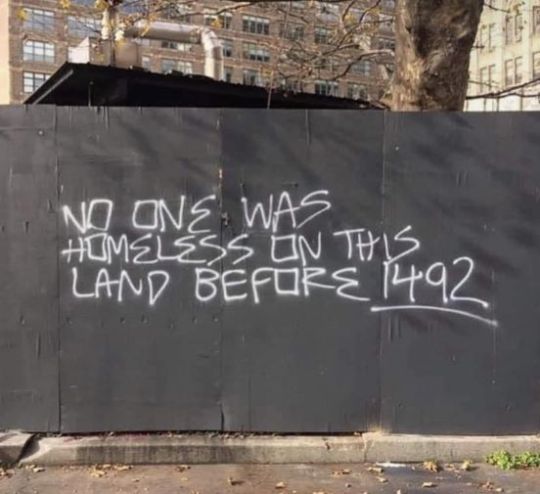
2K notes
·
View notes
Text
Is anyone else just completely disillusioned? Done?
I could not think any less of people still talking about celebrities or how their biggest issues are not having a Starbucks cup that's $50
Like why are we as a collective letting people like that run the lives of everyone on the planet? A planet rife with unnecessary conflict and greed? People who can't be bothered to just Not go to chick-fil-a?
Why are people who clearly value profit over humanity in charge of humanity, ykwim? How the fuck did that become a majority opinion?
I drive thru my nuclear town, I go to our community events, our local small businesses, I try to support my community in ways I can everyday. But I can't help but notice that So Many of the people who do that alongside me, don't show up to protest for the rights of the people they claim to support.
Its all so incredibly shallow and one dimensional and obviously disingenuous and why the fuck are the rest of STILL begging for the ability to make changes within the framework they built?
Why are we still making educational posts for them and trying to make them understand when the first thing we are taught about reaching understand is that you must first be willing to listen and they refuse.
The ruling classes never listened. Never, ever have they granted anyone any oppressed group rights that they asked for without the group needing to fight for it. And it's always after generations of oppression.
I'm fucking tired of being nice and pretending the laws they made up matter and like their socially constructed bureaucracy is the only way to make change to be quite fucking honest.
They're LUCKY we use it EVER and now they don't even fucking listen to our voicemails?
The only things stopping me from taking what's mine are disabilities and I'm Dying to know what everyone else's excuses are.
Or is that?
Are we all physically too incapable? Is every single able bodied person actually a liberal fascist?
Asking for the disabled Turtle Mountain Ojibwe person typing this who's life literally depends on y'all caring enough about other people to make life anything but a list of systematic circumstances I'll suffer from until I eventually die early of an illness I can't afford medical aids for and which are not provided for me either.
And if you're able bodied and you feel the same... Start working outside that framework and stop asking so nicely. Stop giving a shit if you don't have the support of the oppressors and their liberal foot soldiers.
Stop worrying about what CNN is gonna say about you because I promise that the people who matter and Understand you will be inspired to follow in your foot steps and supportive.
Get active in your co-ops, mutual aid groups, and consider training like you're black bloc.
Learn what direct action is and how to do it and start doing it. Just reading theory era is over.
More of this
youtube
less whatever the level of cognitive dissonance this is
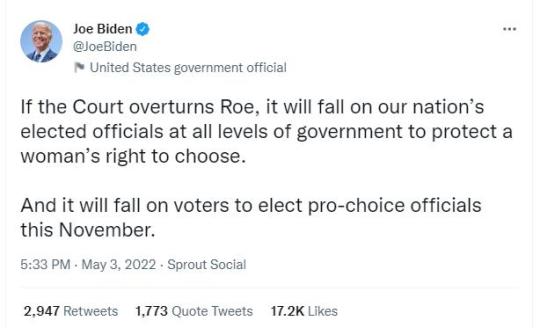
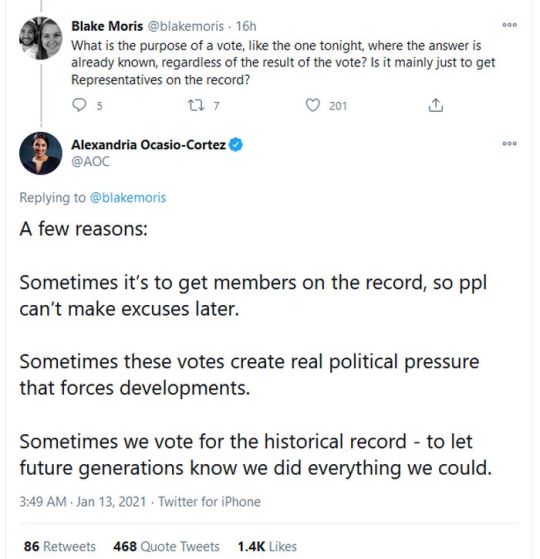
Imagine saying 'i voted so I did everything I could' like the suffragettes didn't have an arson and bombing campaign because the people who Could vote were people benefitted from their systemic silence and thus did almost Nothing to help them get voting rights and they Refused to let oppressor laziness be their obstacle.
Yeah, they don't teach you that in Voting Matters School the suffragettes were bombing the UK just a year or two before they got their rights do they?
The only language oppressors will listen to is their own.
And I'm Tired of pretending otherwise because that delusion is what makes the privileged feel like they don't have to do anything but vote and makes them feel they're justified to criticize those of us that fight back through other avenues.
And maybe if we had politicians that gave a shit about any of us then those votes and movements and public sentiment would have a bigger sway in government, but they don't.
They don't fucking care.
Why are we still giving them power over any of us and letting them tell us what to do and demonize us when they use that power allowed to kill us and bury us in unmarked graves in some field in Mississippi? And make everything so expensive that the richest citizens on earth struggle to pay their bills?
Why can a government only "condemn" a state agent's right to shoot an unarmed protester 57 times, but they can bypass Congress to send Israel billions upon billions worth of weapons?
I'm tired of pretending this country is anything but a front for White Supremacists when every liberal I see is trying to gaslight everyone into thinking genocide is acceptable.
Shut the fuck up and get out of my equality tags, fascist.
#Whiteness#white Supremacy#decolonize#decolonization#colonialism#imperialism#direct action#leftists#fascists#fascism#settlers#colonizer#indigenous#ojibwe#native#ndn#solidarity#mutual aid#lgbt#capitalism#leftist#usa#liberals#progressives#voting#biden#joe Biden#Palestine#gaza#Americans
219 notes
·
View notes
Photo
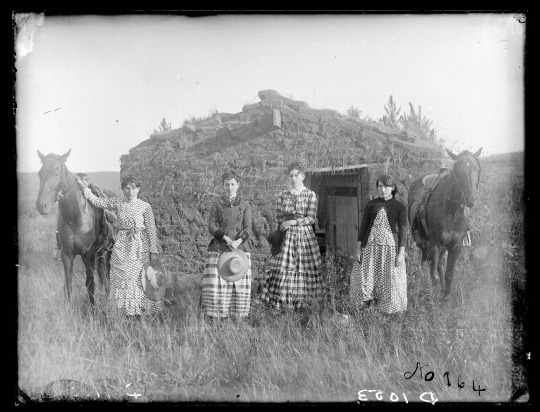
The Chrisman Sisters on a claim in Goheen settlement on Lieban (Lillian) Creek, Custer County. Nebraska, 1886.
Pictured from left to right are: Harriet, Elizabeth, Lucie & Ruth.
200 notes
·
View notes
Text

Settlers of Catan is a board game where players compete to reach a set number of victory points through building and developing towns, cities, and roads on the board. Resource cards, need to build, are also acquired every turn and can be traded between players.
#board games#games that make my baby sister so mad at me she once tried to bite me abt it#settlers of catan#settlers#catan#polls
60 notes
·
View notes
Text
Curious about your roots? Clues are likely hidden in your surname. A last name could hold the echoes of historical events or reveal a fascinating connection to significant eras, unveiling a family's historical narrative.
The evolution of family names has been impacted by immigration waves, wars, and cultural shifts. From DNA testing to online forums, scientific and social strands weave our heritage.
35 notes
·
View notes
Text
instagram
Daniella Weiss Israeli Orthodox Zionist settlement movement extremist, and a former mayor of Kedumim, an Israeli settlement located in the West Bank.
Look up any interview with her. It's all the same.
#settlers#settler colonialism#colonial violence#isreal is an apartheid state#isreal kills children#isreal is a terrorist state#palestinian genocide#stop the genocide#end the occupation#occupation#occupied palestine#the west bank#palestine#free palestine#gaza#free gaza#israel#genocide#current events#gaza genocide#jerusalem#history#Instagram
26 notes
·
View notes
Text
Last night, Israeli settlers slashed the tires of dozens of Palestinian vehicles in Deir Dibwan. This video is from our neighbor's security camera.
This latest settler attack comes just hours after US Secretary of State Anthony Blinken was holding meetings in the town on "security", where he essentially called for Palestinian capitulation to Zionist demands & for us to abandon resistance.
Every single Israeli settler is a terrorizing colonizer, whether they're invading Palestinians towns & cities to set homes on fire, whether they're murdering Palestinians with complete impunity, or whether they spend their time watching sitcoms at home in their Settlements.
This was just one of several dozen Israeli settler raids that occurred last night, and just one of /numerous/ that have taken place in Deir Dibwan. Our own home was spray-painted with the Jewish star & had its windows shattered a few years back.
137 notes
·
View notes
Text
A question for the people whose ancestors lived under settler colonialism and people who still live under settler colonialism.
Do you have a natural instinct to recognize settlers? Not necessarily all the settlers but the ones who oppressed your people specifically? Like for example if you’re Palestinian do you have a natural instinct to recognize “Israeli”? If you’re Algerian do you have a natural instinct to recognize a pied noir? If you’re indigenous to Turtle Island, Kanaky, Lagwiyann, Aotearoa… can you instinctively tell appart a long time settler from a recent immigrant? (I’m making it more specific in that case because technically any white person there is a settler)
I have that thing where I can just know if someone is a pied noir or a pied noir descendant just by meeting them. I don’t need to talk with them I just have that feeling and it’s almost always right (always for the pied noir and 8 times out of 10 for their descendant) and it’s not necessarily because they are racist toward me I just feel it? And I was wondering if other people had that thing?
17 notes
·
View notes
Photo
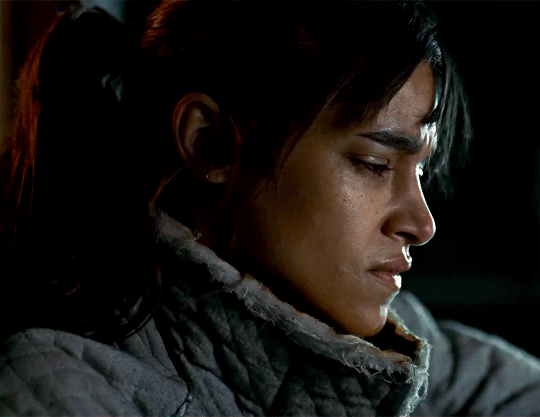


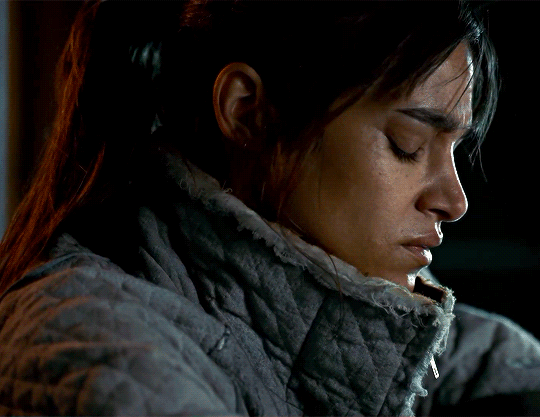

Sofia Boutella as Ilsa SETTLERS (2021)
#sofia boutella#sofiaboutellaedit#sboutellaedit#settlers#settlersedit#filmedit#ladiesofcinema#femalecharacters#usercinemagifs#userfilm#userbldhound#userjodie#kds
81 notes
·
View notes
Photo


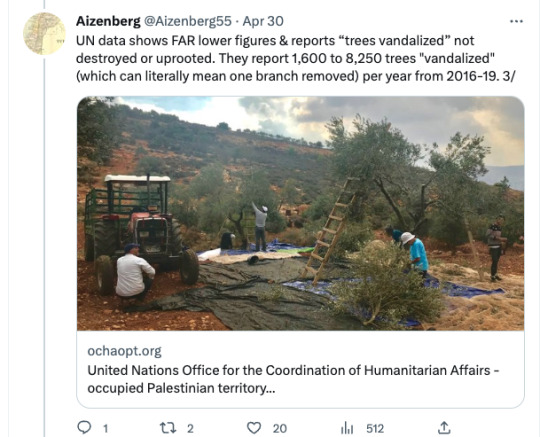


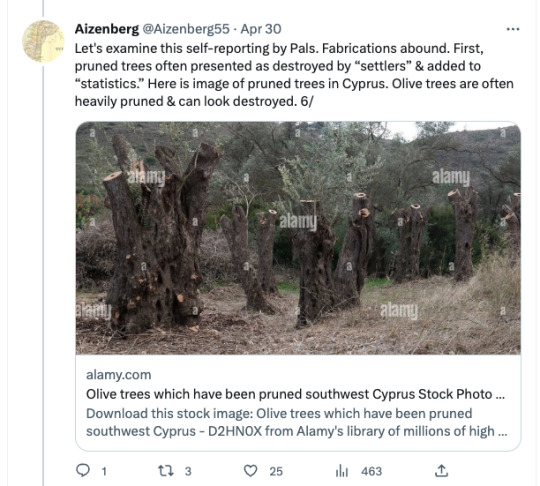
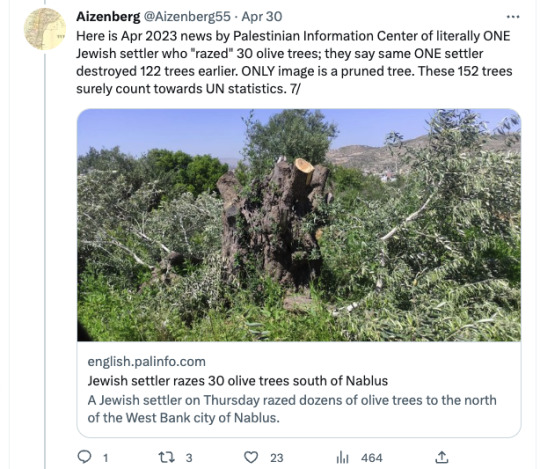

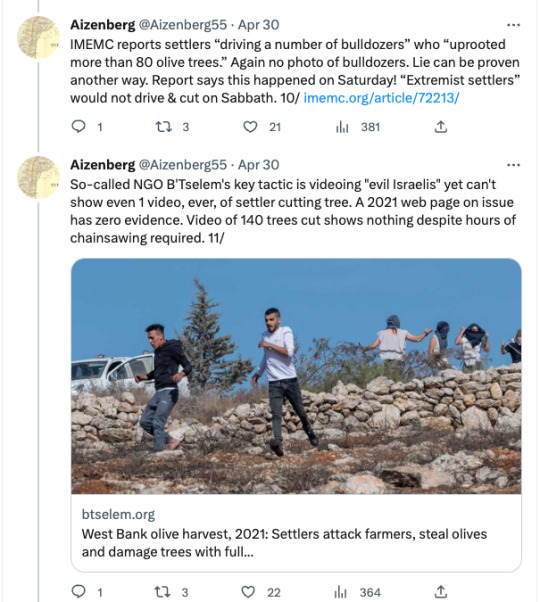
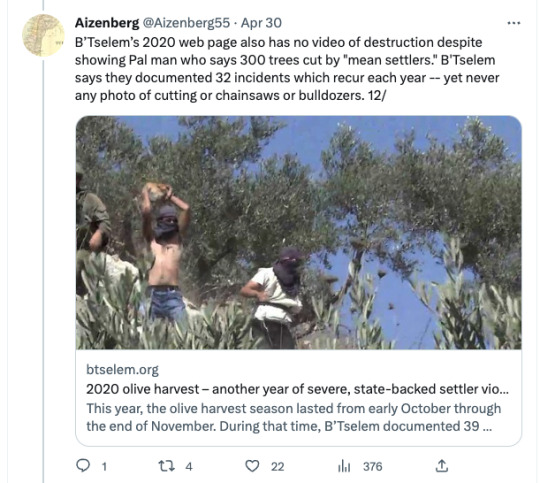




Source
#olive trees#olive trees uprooted#palestinian lies#b'tselem#pruned olive trees#settlers#israeli settlers#israeli settlers destroy olive trees
58 notes
·
View notes
Text
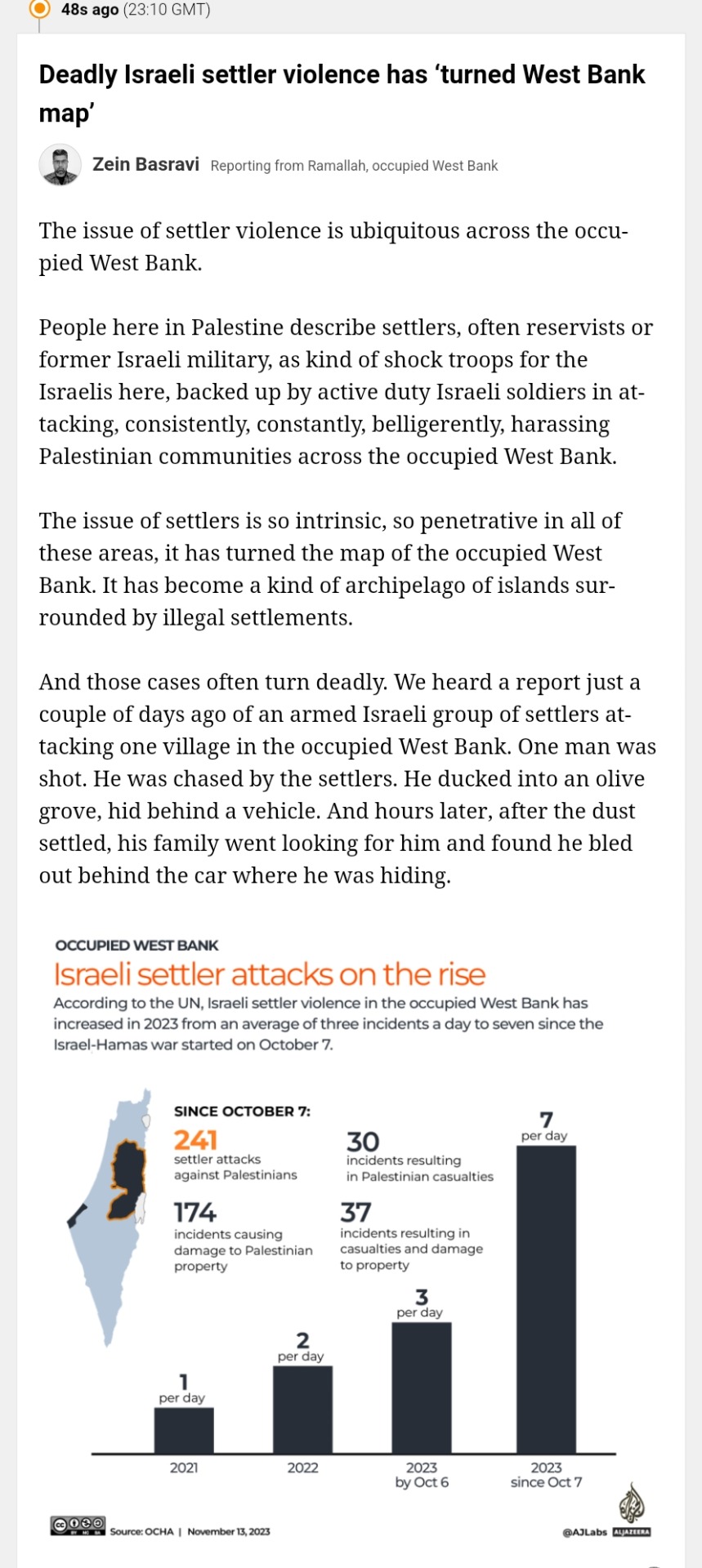
Zein Basravi writing on Apartheid Israeli Settlers and the violence that accompanies them
#free gaza#free palestine#gaza strip#irish solidarity with palestine#palestine#gaza#news on gaza#al jazeera#boycott israel#israel#Zein Basravi#West Bank#west bank settlers#west bank palestinians#Infograph#Settlers#Israeli Settlers
19 notes
·
View notes
Text
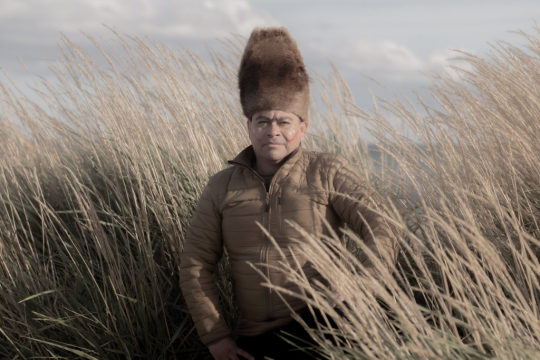
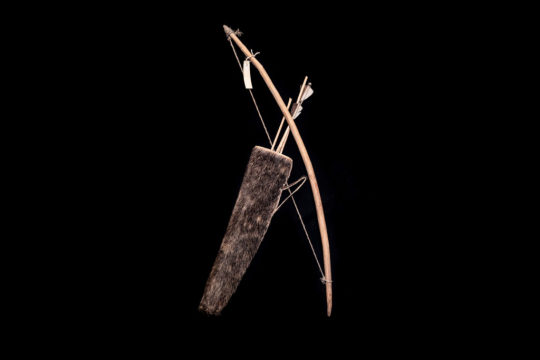


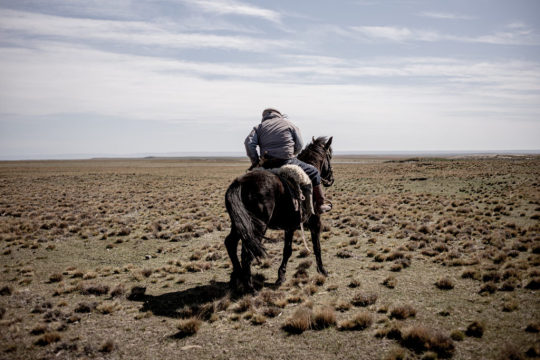
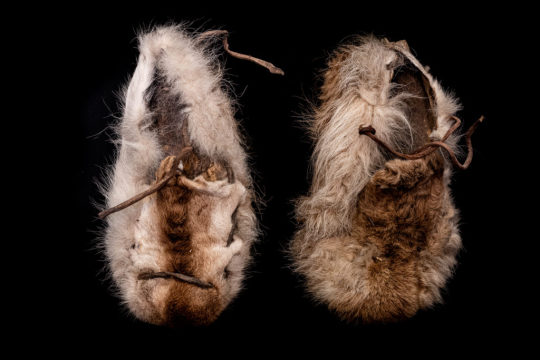

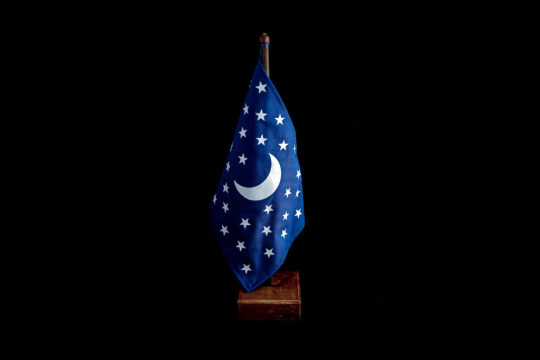

The Selk'nam's quest for recognition in Chile by Marcio Pimenta and Nina Radovic Fanta
"About 500 years ago, the Portuguese explorer Hernando de Magellan discovered a maritime passage in the extreme south of the planet, a region unknown to Europeans at the time, a place they would come to call "Tierra Australis Incognita." The discovery, in effect, was the first globalization of modern society. The sea passage itself was named the Strait of Magellan. In the 19th century, other Europeans and their descendants would arrive, this time to stay. Men who had already domesticated plants and animals and who upon arriving in what is now called Tierra del Fuego found hunter-gatherers who had lived there for more than 10,000 years. That indigenous group would become to known as Selk'nam. The encounter between hunter-gatherers and the colonizer farmers led to a defacto death penalty for the Selk'nam. A tragedy that is still the order of the day. Considered extinct in the history books and laws written by the victors, yet the survivors claim to be alive. And now they fight for recognition.
In Chile, a century has passed, and a dictatorship, without the Selk'nam genocide being addressed. This began to change only recently, in the 2010s, thanks to the Internet, when web users searching for their origins could now find each other. Now, together, the Selk'nam face the process of decolonizing and denaturalizing the historical perspective, of recovering and rethinking what happened to them. They have created community centers where family experiences, stories and memories are shared and the truth is confronted. The Selk'nam are organized in entities such as Corporación Selk'nam and Comunidad Covadonga-Ona, both in Chile, and Comunidad Rafaela Ishton, in Argentina, to fight for their rights, starting with the recognition that they still exist, that they are not yet extinct. It is a living people. Comunidad Rafaela Ishton has existed since the 1980s and was one of the first to obtain legal jurisdiction in Argentina. In 1994, the Selk'nam were recognized as an indigenous people by the Argentine state. More than 600 families, in total about 1000 people, identify themselves as Selk'nam in that country. Hema’ny Molina, president of the Corporation Selk’nam Chile, and Miguel Pantoja, member of the Community of Rafaela Ishton, do not accept to be seen as “descendants” of the Selk’nam. “I am not a descendant, I am Selk’nam,” says Pantoja. “I have to explain myself and think about myself– it’s something violent,” he continues. Molina, in agreement, adds: “I always knew that I was Selk’nam but that does not mean to live as such or understand how to do it. There are various, complex layers. For many years there was a feeling of loneliness as we were unaware of the existence of other families. It was a feeling of emptiness and complete solitude. Who am I going to talk to? Who am I going to tell? Will people believe me?”
In Chile, Corporación Selk'nam won legal jurisdiction in 2015. The organization has more than 50 members and their families, in total, number about 200 people. According to the 2017 Chilean census, 1,144 people identified themselves as Selk'nam. Still, the Chilean state does not recognize the existence of the Selk'nam as a people. The Corporation Selk'nam fights for the inclusion of the Selk'nam in the list of "main ethnic groups" recognized by the Indigenous Law No. 19,253, of 1993.
They have the help of researchers from two Chilean universities: Universidad Católica Silva Henríquez and the Universidad de Magallanes. Alejandro Núñez Guerrero, director of the Centro Universatario of the Universidad de Magallanes in Porvenir, Chile, has been forging agreements to carry out more field research. Among their findings so far, it was recently discovered that the first settlers' ranch on Tierra del Fuego was built on the Chilean side and not on the Argentine side, as previously believed, and that the Selk'nam are actually more numerous on the island. All of this are fundamental facts in the recognition process.
For their part, Héctor Vásquez Chogue, former vice-president of the Covadonga Ona community, and his brother, José Luis Vásquez Chogue, secretary of the Selk'nam Corporation, have been on a personal quest for more than thirty years. The recent journey of self-discovery as Selk'nam has also turned into a tour of endless meetings with Chilean politicians to incorporate the Selk'nam into the Indigenous Law. The main objective is to make them known as living Selk'nam, as a modern and integrated people, unlike what is currently taught. "It is difficult to say who I am, because the State does not recognize us," says José.
The Selk'nam hope to receive official recognition in early 2022, the deadline which the Chilean state has given the community to prove they are alive."
28 notes
·
View notes
Photo
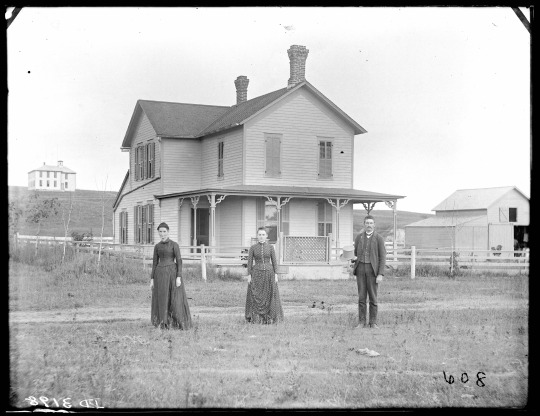
A man, woman, and younger woman in front of farmhouse in east Custer County, Nebraska. 1888.
991 notes
·
View notes
Text
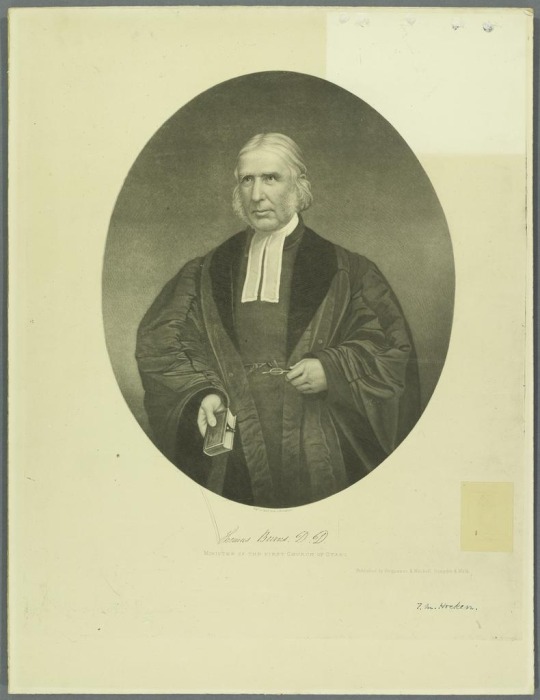


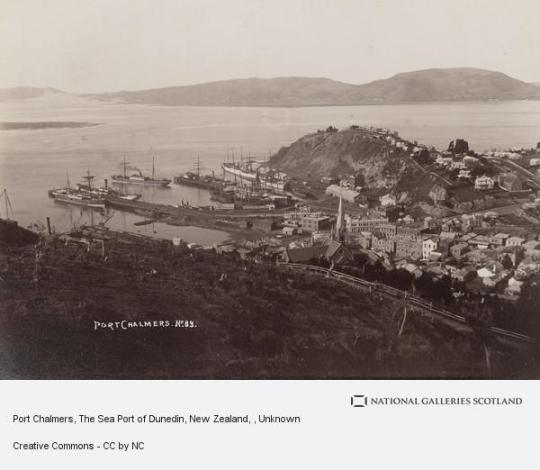

On March 23rd 1848, the Free Church of Scotland settlement at New Edinburgh, New Zealand was founded, it is known today as Dunedin.
It was the poet’s uncle, Rev Thomas Burns, who was among the first settlers to arrive in Dunedin, the Gaelic for Edinburgh, having been appointed by the Free Church to lead a new Presbyterian settlement in the South Pacific
One passenger on the John Wickliffe, the fist ship to carry Scottish settlers to the South Island of New Zealand, wrote in his diary: “All seemed pleased and called it a goodly land – Port Chalmers and around is truly beautiful – rich in scenery – its slopes and shores are fertile, and wooded to the water’s edge.”
Every year in Dunedin, the arrival of these first settlers from Scotland is marked by Otago Anniversary Day, the public holiday falling this year on Monday just gone.
A second boat sent by the Otago Association, founded by the Free Church to broker land sales in South Island for its followers, arrived on April 15 with more than 200 people on board. They had spent 114 days at sea since leaving Greenock.
On board were people such as Adam James, 25, a boatbuilder; James Blackie, 21, a school teacher, James Brown, 23, a calico printer and Mary Pollok, 19, a servant.
By the end of the 1850s, around 12,000 Scots had joined them in this new flourishing city, many from the industrial lowlands.
Artisans, small traders and industrial workers were to make up a third of all Scottish migrants to New Zealand with almost 70 per cent of this group coming from the Edinburgh and Glasgow area.
A number left Paisley in the early 1840s when its weaving industry was in trouble with the south part of the city to become known as “Little Paisley”.
It was George Rennie MP, born in East Lothian, who first proposed a Scottish settlement in 1842 when he declared “We shall found a New Edinburgh at the Antipodes that shall one day rival the old.”
Chief operators of the church-led plan included William Cargill, a former British Army captain who commanded the John Wickliffe and became the first superintendent of Otago.
Edinburgh solicitor John McGlashan, became the Otago scheme’s chief organiser and promoter who commandeered residents for the new colony and organised ships.
His office at 27 South Hanover Street was open 10 hours a day as people turned up at his door to organise their passage.
Conditions were tough on arrival with relentless hard graft required to transform mud and bush into even the most primitive settlement. A number of wattle and daub cottages were constructed with the place dubbed “Mud-edin” given the coarse conditions.
Still, the Free Church, in an 1853 publication, had the highest praise of the new Scots residents who were “mostly of the labouring classes who had the aim of becoming landowners.”
The author noted the “very high character” of the residents and the “very serious regard to their religious duties.”
The extreme piousness of the settlement is made startling clear.
“The silent religious aspect of our Sabbath, the solemn seriousness, the death-like stillness, and the reverential attention in the house of God strike every stranger and are unequalled by anything of my experience,” the account added.
Despite the growth of Dunedin, the Otago Association folded in 1852 after repeatedly failing to meet is sales targets with its assets and liabilities taken over by the British Government.
McGlashan took a ship to join the settlers in Otago. He and Captain Cargill were to become major players in the governance of the region with the moral authority delivered by Rev Burns, a foundation chancellor of the University of Otago who some disliked for his heavy handed puritanical ways. Anglicans were referred to as “Little Enemy” by the Ayrshire-born minister.
As Tom Devine noted in To the Ends of the Earth, one anonymous correspondent to the New Zealand Otago Times, writing under the pseudonym a Staunch Englishman, described the Scots settlers as a “mean, close, bigoted, porridge-eating” lot who were prone to “minding the sixpences.”
The legacy of those first settlers is, however, ample. Otago Boys’ High School was set up in 1864, the University of Otago in 1869 and Otago Girls’ High School, one of the first state-run schools of its type in the world, opened in 1871.
John McGlashan College, Dunedin’s Presbyterian boys’ school, was founded in 1918 from a bequest to the Church by McGlashan’s daughters.
The stiff presbyterian tone of Dunedin is also said to have spurred a “creative rebellion” with works by Dunedin poet James K Baxter considered among the country’s finest.
Today, whisky, pipe band sand the city’s own Haggis Ceremony continue to mark the impact of those first Scottish settlers who arrived.
Shops on the main street stock Dunedin tartan, tweeds and Scottie dog trinkets and sign posts point to places such as Leith Valley, Corstorphine, Musselburgh and Calton Hill.
Bars pride themselves on their selections of fine malts, churches have an air of architectural familiarity and the municipal chambers looks as if it could have been transported from any Scottish town. A statue of Robbie Burns stands in the main square.
Mark Twain, after visiting Dunedin in 1895, wrote of them: “The people are Scotch. They stopped here on their way from home to heaven thinking they had arrived.”
For millions of Scots scattered worldwide, Scotland remains the homeland. It's the place they look towards for inspiration, with affection, or with an air ticket to renew that sense of Scottish identity. The internet has made the world a lot smaller for us all, which is why many enjoy the posts here, it gives them a wee sense of belonging, even if it less than a dram of Scottish blood you have flowing through you.
8 notes
·
View notes
Text
Some things my fellow pro-Israel folks need to keep in mind:
a fair amount of Palestinians currently in administrative detention probably need to be set free immediately
a fair amount of Israeli settlers probably need to be in Israeli prisons on significant sentences
a fair amount of Israeli soldiers, police, and prison guards who regularly deal with Palestinians probably need to be discharged from their duties, and a subset of that probably need to also be in prison
I feel like you can believe these things and also support the current existence of the Israeli state (if an actual solution to the I/P conflict ever happened, presumably these issues would become less important)
15 notes
·
View notes